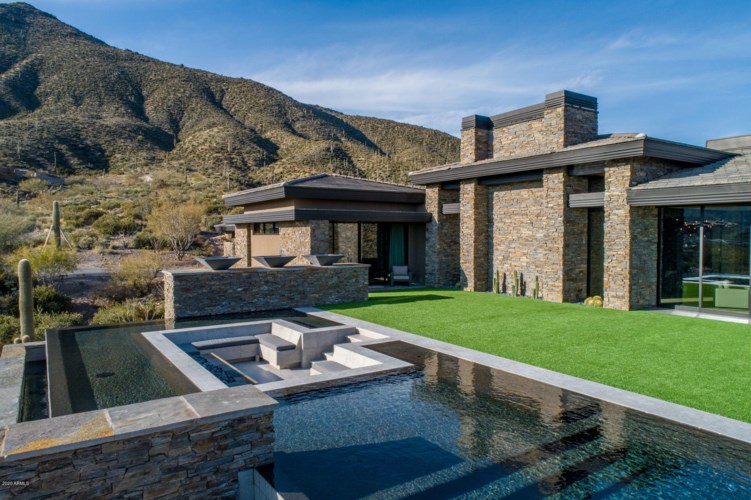Most Americans aren’t on track for a comfortable retirement. A decent amount of working adults don’t have any retirement savings at all.
A big reason for this is because saving your way towards retirement seems impossible. And for many people, it is.
Saving up hundreds of thousands of dollars, unless you make a high income, is very unlikely … especially with the rising cost of the American lifestyle.
But there is a better way. Real estate investing is one of the best wealth-building and retirement strategies. But should you buy and hold or flip real estate?
There are many types of real estate investments that can help you leverage your way to passive income, big paydays, and long-term wealth. And you can get started today with nothing more than the average American salary.
Wondering what the different types of real estate investments are that can secure your retirement in record time? Keep reading to find out below.
Flipping Your Way to Big Paydays
One of the most popular ways of making money in real estate is by flipping homes. This is the process of purchasing an old, outdated, worn-out property and fixing it up to sell for a profit.
If done right, you can stand to make anywhere from $20,000 to over $100,000 in profit. Selecting the right area, the right property, and getting a good deal on the purchase price makes a big difference in your level of profit.
This strategy has been popularized by the many TV shows on HGTV that make flipping houses look fun and easy. The problem with those shows, though, is that flipping homes is neither fun nor easy.
The best way to flip homes is by having cash upfront. You’ll want enough money to put a down payment on a cheap property so that you can buy the home. Then you want money in the bank that you can use for the rehab.
Not having to finance these two costs can save you boatloads of money in high interest, hard money loans.
If you don’t have a ton of cash upfront, you may still be able to start flipping. You can work with hard money lenders, who provide short-term loans specifically meant for flipping properties in under a year.
If you can manage to flip one home per year and make a profit of at least $20,000, that can radically jumpstart your retirement savings. You can either put that money into traditional retirement accounts or use it to do bigger and better flips.
The Live-in Flip
For a more accessible approach to house flipping, you can go with the live-in flip. This is when you buy an outdated home as your primary residence.
Rather than try to fix it up as quickly as possible, you do so over the course of your time in the home. There’s far less pressure since you don’t have hard money loans and tight deadlines to meet.
It can help you to take your time with renovations and ensure you get top dollar when you eventually sell.
Keep in mind that if you sell your primary residence after living in it for less than two years, it will be considered an investment and incur capital gains tax on the selling price. If you wait at least two years before you sell, you’ll be able to enjoy your gains tax-free, and put them into your next property.
Renting for Passive Cashflow
The other main strategy when it comes to investing in real estate for retirement is long-term rentals. This is when you buy a home and rent it out to tenants. Your goal should be to hold a house as long as possible, if not forever.
If you buy right, you should be able to earn enough to pay all of the housing expenses, plus a profit. A good goal to set is the 2% rule. This is when you can rent the house for 2% of the purchase price, and make a monthly profit.
So if you buy a $200,000 house, your baseline should be renting the house out for $2,000 per month and still earning a profit.
With a rental, your expenses include mortgage principal, mortgage interest, property taxes, and homeowners insurance. Tenants should pay their own utilities.
After paying all of that, anything profit is considered cash flow. If your rental property portfolio can provide you with enough cash flow to cover your living expenses, you can decide to retire early if you want.
Turnkey Rental: Make it Easy
Buying, fixing up, and renting out homes is a lot of work. You can hardly call it passive income.
But if you have the money and want to invest in rentals without all of the work, you can invest in turnkey rentals. These are properties that have already been fixed up and rented out. They are just looking for a new owner.
Most turnkey companies will provide ongoing property management as well, so that you can enjoy cash flow from your rentals and price appreciation without having to lift a finger.
Your most important decision is choosing a turnkey provider and a market to invest in. Check out this guide for more information.
Once you start investing in real estate the hands-off way, you’ll discover that these really are the best real estate investments.
Short-Term Rentals
While most investors choose the safer, more passive approach of long-term rentals, where tenants stay in place for a year or longer, some prefer short-term renters. Otherwise known as the vacation rental market, this approach can earn you much more money per month.
Consider the rental house mentioned earlier. If you could make $2,000 per month on a long-term rental, on a $200,000 house, you might be able to double your monthly income with a vacation rental.
To make $2,000 per month, you can rent the home out for $100 per night and still only rent it out 20 nights out of the year. If you buy in a good location and decorate the house well, you can charge a higher rate, and book more nights per month.
One home has the potential to make almost a full-time income. Of course, it comes with more work, such as managing bookings, cleaning between guests, and so forth. But the potential is there for those willing to put in the work.
Choosing Different Types of Real Estate Investments
Many investors don’t limit themselves to just one of these types of real estate investments. Savvy investors know that each strategy provides various benefits.
So they might have multiple long-term rentals, one or two short-term rentals, and a flip going on all at the same time. And many people make enough money to retire early but still keep investing because it’s fun and it doesn’t even feel like work.
Will that be you one day?
Want to learn more about investing and managing your finances? Head over to our website now to keep reading.




